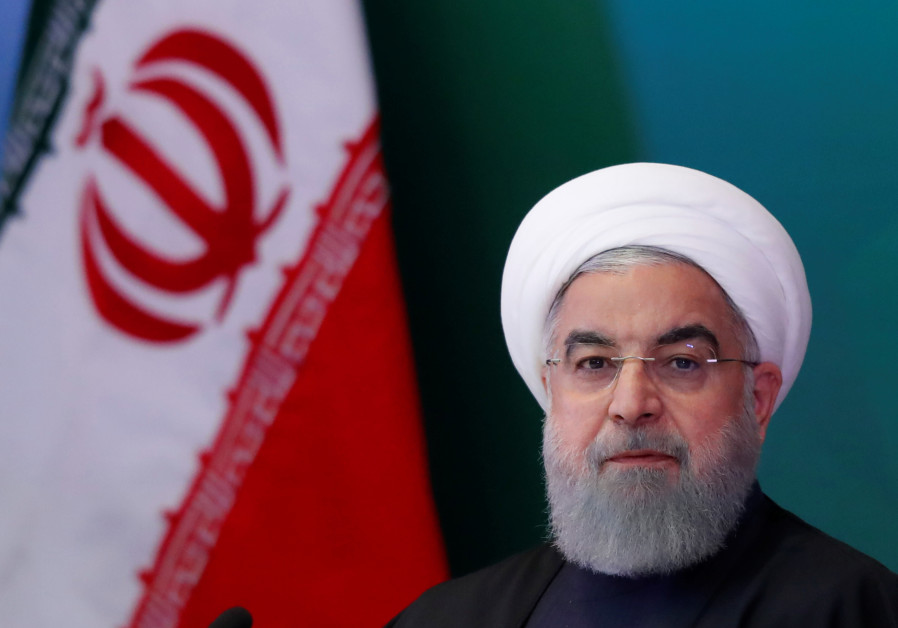Rouhani compares current ‘difficult conditions’ to Iran-Iraq War

Iranian President Hassan Rouhani attends a meeting with Muslim leaders and scholars in Hyderabad, India, February 15, 2018.. (photo credit: REUTERS)
Iranian President Hassan Rouhani compared Iran’s current situation with the Iran-Iraq War which killed and injured millions and heavily affected the country’s economy in a meeting with a group of politicians on Saturday, according to Radio Farda.
“Today it is not possible to say if conditions are better or worse than during the imposed war, but at the time we did not have problems with banking, selling oil, imports and exports and our only problem was a weapons sanction,” Rouhani said.
The Iran-Iraq War, which began in 1980 and continued for 8 years, left nearly two-million people dead and wounded on both sides of the fight, and it took years afterwards for the government to end the rationing of food and essential goods.
“Some goods might be rationed and distributed through vouchers or coupons,” said Islamic Republic Vice President Es’haq Jahangiri without much elaboration according to a Radio Farda report. “We might be forced to ration some goods and reintroduce vouchers for distributing them.”
Increasing US sanctions imposed since 2018 have virtually stalled much of Iran’s oil exports and foreign investment and have reduced its trade.
US President Donald Trump imposed new sanctions on Iran on Wednesday, as Iran announced that it was relaxing some restrictions on its nuclear program, according to Reuters.
“I believe we can get through this tough situation if we stick together and lend a helping hand to each other,” Rouhani said. “We face difficult conditions, but at the same time I am not hopeless.”
“Surrendering is not compatible with our religion and culture and people will not accept it, therefore we should not surrender. Instead we should find solutions,” Rouhani told the politicians.
“In this regard, it important to consider to what degree solutions can be determined by the government,” Rouhani said, possibly referring to the distribution of power in Iran and the limited power his government has, according to Radio Farda.
Much of the military’s policies, foreign policy, cultural and social restrictions, judicial and major economic policies are determined by Iran’s Supreme Leader Ali Khamenei, not the president.
Zachary Keyser contributed to this report.
Join Jerusalem Post Premium Plus now for just $5 and upgrade your experience with an ads-free website and exclusive content. Click here>>






Comments are closed.